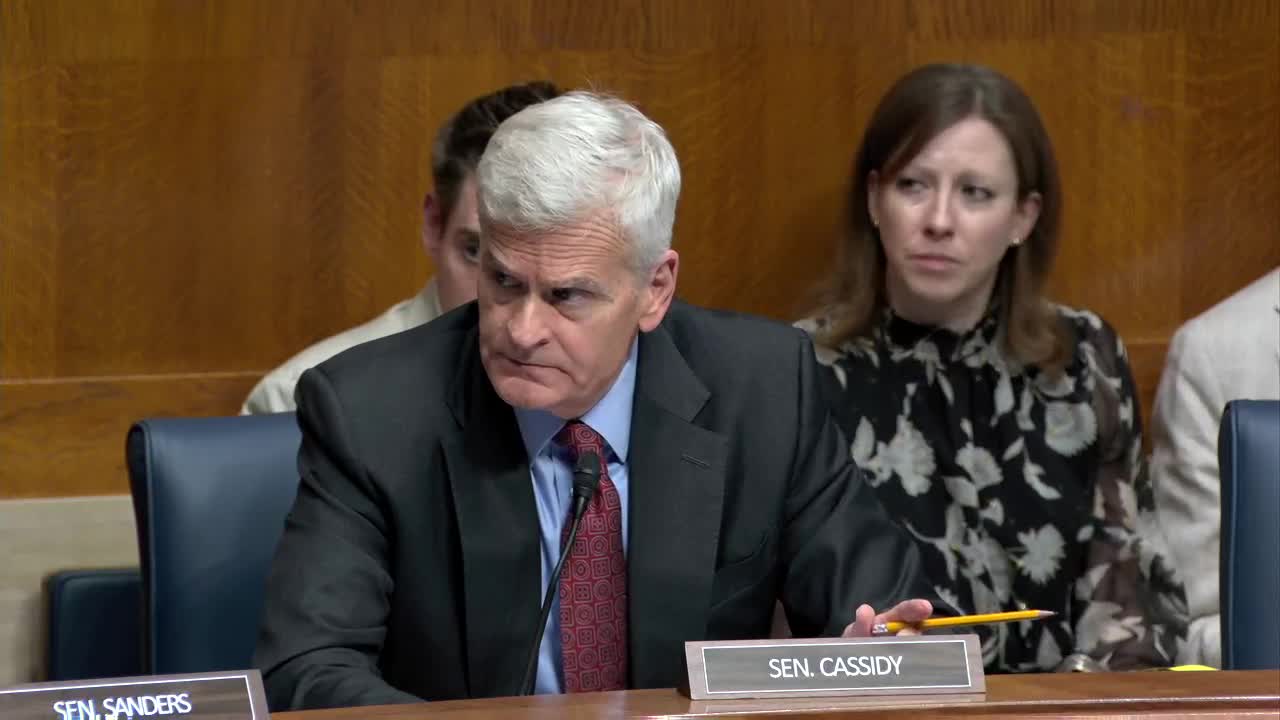Senators Marshall and Sanders advance bill to facilitate employee stock ownership plans
July 30, 2025 | Health, Education, Labor, and Pensions: Senate Committee, Standing Committees - House & Senate, Congressional Hearings Compilation
This article was created by AI summarizing key points discussed. AI makes mistakes, so for full details and context, please refer to the video of the full meeting. Please report any errors so we can fix them. Report an error »

In a recent meeting of the U.S. Senate Committee on Health, Education, Labor, and Pensions, discussions centered around the promotion of Employee Stock Ownership Plans (ESOPs) highlighted significant challenges and proposed solutions. The committee members, including Senators who collaborated on the ESOP initiative, emphasized the need for clearer valuation guidelines to encourage more businesses to transition to employee ownership.
The conversation revealed that one of the primary obstacles to establishing ESOPs is the difficulty in determining a fair market value for a company's stock when it is sold to employees. Senators noted that business owners often fear that they will either undervalue their company, resulting in a financial loss, or overvalue it, which could burden employees with excessive debt. This concern is compounded by the potential for future scrutiny from the Department of Labor (DOL), which has historically been slow to provide regulatory guidance on valuation standards.
To address these issues, a proposed bill aims to leverage existing IRS guidelines for valuing small, closely held corporations. By adhering to these guidelines, business owners would gain a "safe harbor" from potential legal challenges regarding the fairness of their stock valuations. This legislative effort is seen as a crucial step toward facilitating the growth of ESOPs, which can provide employees with a stake in their companies and promote long-term business sustainability.
Additionally, an amendment proposed by Senator Sanders was discussed, which aims to clarify certain aspects of the bill, further strengthening its potential impact. The committee expressed optimism that these legislative efforts could lead to an increase in the formation of ESOPs, ultimately benefiting both business owners and employees.
As the committee prepares to introduce another bill, the discussions underscore a growing recognition of the importance of employee ownership models in the U.S. economy. The anticipated changes could pave the way for more businesses to consider transitioning to ESOPs, fostering a culture of shared success and stability in the workforce.
The conversation revealed that one of the primary obstacles to establishing ESOPs is the difficulty in determining a fair market value for a company's stock when it is sold to employees. Senators noted that business owners often fear that they will either undervalue their company, resulting in a financial loss, or overvalue it, which could burden employees with excessive debt. This concern is compounded by the potential for future scrutiny from the Department of Labor (DOL), which has historically been slow to provide regulatory guidance on valuation standards.
To address these issues, a proposed bill aims to leverage existing IRS guidelines for valuing small, closely held corporations. By adhering to these guidelines, business owners would gain a "safe harbor" from potential legal challenges regarding the fairness of their stock valuations. This legislative effort is seen as a crucial step toward facilitating the growth of ESOPs, which can provide employees with a stake in their companies and promote long-term business sustainability.
Additionally, an amendment proposed by Senator Sanders was discussed, which aims to clarify certain aspects of the bill, further strengthening its potential impact. The committee expressed optimism that these legislative efforts could lead to an increase in the formation of ESOPs, ultimately benefiting both business owners and employees.
As the committee prepares to introduce another bill, the discussions underscore a growing recognition of the importance of employee ownership models in the U.S. economy. The anticipated changes could pave the way for more businesses to consider transitioning to ESOPs, fostering a culture of shared success and stability in the workforce.
View full meeting
This article is based on a recent meeting—watch the full video and explore the complete transcript for deeper insights into the discussion.
View full meeting